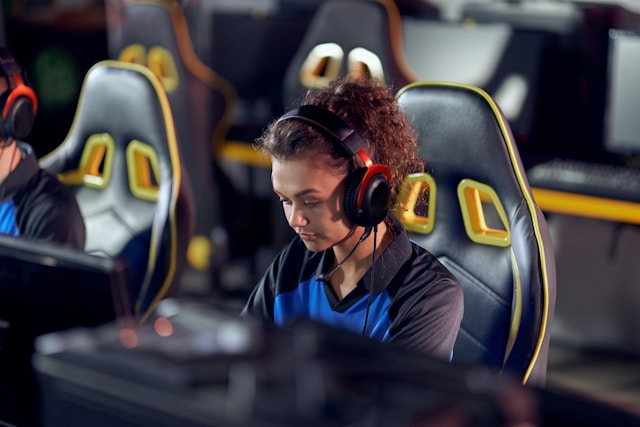Artificial Intelligence (AI) is making significant strides in the esports industry, driving innovation and transforming various aspects of competitive gaming. From enhancing player strategies to improving game design and fan engagement, AI is becoming a crucial tool in shaping the future of esports at Bestiebet88. This article explores how AI is impacting the esports landscape and its potential to revolutionize the industry.
One of the most prominent applications of AI in esports is in the analysis and optimization of player performance. AI-powered tools can analyze vast amounts of gameplay data to identify patterns, trends, and areas for improvement. For instance, AI algorithms can process data on player movements, decision-making, and in-game actions to provide actionable insights that help players refine their strategies and enhance their skills. This data-driven approach enables players to understand their strengths and weaknesses more comprehensively, leading to more effective training and preparation.
AI is also playing a significant role in game development and design. Game developers are using AI to create more dynamic and challenging game environments. AI-driven algorithms can simulate realistic in-game scenarios, generate adaptive AI opponents, and create complex game mechanics that evolve based on player behavior. This results in more engaging and unpredictable gameplay experiences, keeping players on their toes and driving continuous innovation in game design.
In addition to improving gameplay, AI is transforming the way esports events are organized and broadcasted. AI-powered systems can enhance live streaming by providing real-time analytics, commentary, and visualizations. For example, AI can generate instant highlights, analyze game statistics, and offer in-depth commentary during live broadcasts. This enhances the viewing experience by providing audiences with richer, more informative content and helping them better understand the nuances of the game.
AI is also being utilized to enhance the fan experience in esports. Personalized content recommendations, interactive features, and virtual experiences are all powered by AI. For example, AI algorithms can analyze fans’ viewing habits and preferences to deliver tailored content, such as highlights, news, and updates related to their favorite teams and players. Additionally, AI-driven chatbots and virtual assistants can provide fans with instant information and support, improving engagement and interaction with the esports community.
The integration of AI in esports extends to team management and organizational strategies. AI tools can help teams with scouting, recruitment, and strategic planning. By analyzing player performance data, AI can identify potential talent, assess player compatibility, and assist in forming optimal team compositions. Additionally, AI-driven predictive analytics can forecast match outcomes and inform strategic decisions, helping teams develop more effective game plans and adapt to opponents’ strategies.
AI also offers potential benefits in terms of game balance and fairness. By analyzing player behavior and in-game data, AI can identify and address balance issues, such as overpowered characters or strategies. This helps ensure a fair and enjoyable gaming experience for all players, contributing to the overall integrity of competitive gaming.
As AI technology continues to advance, its impact on esports is likely to grow even further. Future developments may include more sophisticated AI algorithms, enhanced real-time analysis capabilities, and deeper integration into game design and event management. These advancements will continue to drive innovation and shape the future of esports, offering new opportunities for players, teams, developers, and fans alike.
In conclusion, AI is playing a transformative role in the esports industry, driving advancements in player performance, game design, event broadcasting, and fan engagement. By leveraging AI-powered tools and technologies, the esports ecosystem is evolving rapidly, offering more dynamic and immersive experiences for players and viewers. As AI continues to advance, its influence on esports will undoubtedly expand, shaping the future of competitive gaming and opening up new possibilities for the industry.
